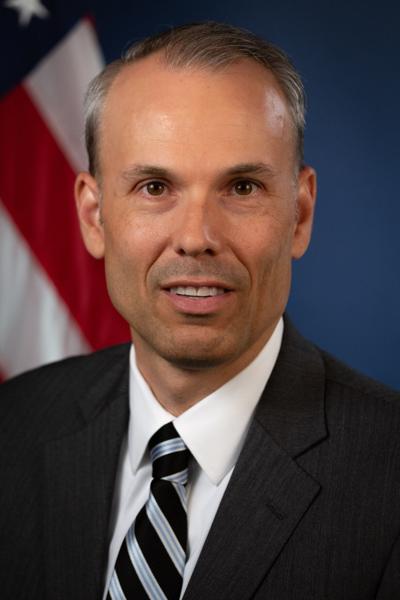CADILLAC — Highly cheap, highly potent and highly lethal drugs are proliferating the U.S. and the problem may be worse now than it’s ever been.
U.S. Attorney Mark Totten, with the Western District of Michigan, told the Cadillac News on Thursday that over the years, the nature of the country’s drug problem has changed.
“It feels more threatening now,” Totten said.
Totten said evidence of that threat can be seen in the record number of overdose deaths last year from fentanyl — a synthetic opioid that is similar to heroin but far more powerful.
Another synthetic drug that has destroyed the lives of countless people in this area is meth.
“They are dominating the landscape,” Totten said in regard to meth and heroin.
The thing both drugs have in common — and one of the reasons their use is so widespread — is because there are virtually no limits to their production, since they are synthetic. The availability of heroin, for example, is limited by the amount of poppy plant that can be grown, Totten said.
As a result, Totten said both fentanyl and heroin are extremely cheap to purchase on the streets and also extremely pure.
The majority of meth and fentanyl that comes to the U.S. is mass produced by drug cartels in Mexico, although many of the precursor chemicals the cartels use to manufacture the drugs are imported from China, Totten said.
Recently, Totten said his office was involved in the prosecution of a man who was charged with transporting large amounts of drugs from Muskegon to Traverse City.
It’s these types of cases involving regional suppliers to rural Northern Michigan communities that Totten said his office focuses on, rather than small-time street-level busts.
Getting a handle on this problem is important, Totten said, because people are regularly dying of overdoses after consuming things they had no idea contained deadly drugs.
“Two milligrams of this substance can kill someone,” Totten said in regard to fentanyl, which can be put into many drugs, including heroin, and also is made into pills that can easily be mistaken for other drugs.
“There are victims who don’t realize what they’re taking is so poisonous,” Totten said.
In the past, Totten said it generally took some time for a person to develop an addiction bad enough to eventually die from an overdose. Today, it might be someone’s first time trying that will kill them.
Other issues that the Western District is keeping an eye on include human trafficking and domestic terrorism.
Human trafficking includes sex trafficking and labor trafficking, which is using force or coercion to get someone to perform a service or labor.
Both types of trafficking can be very difficult to prosecute, Totten said, since in many cases the victim is unwilling to cooperate with law enforcement. Cooperation in these cases also can be hard to get when the victim is not a legal citizen of the U.S.
Attempting to gauge the scope of this problem in the region is challenging, Totten said, because they just don’t strong enough data about the crime.
“It’s something we’re actively thinking about how to address,” Totten said.
An issue that Totten was more confident to say has gotten worse in recent years is domestic terrorism, which he said has been identified by the Attorney General’s office as one of the biggest threats the country faces.
In the years following 9/11, Totten said the focus was on international terrorism but within the last five years or so, that has changed. Groups energized by ideological and race-based belief systems have become more active in recent years, including in the Western District, Totten said.
An example of such a case is an individual arrested recently in Pickford, Michigan for allegedly plotting to perform a mass shooting at a Jewish temple in East Lansing, Totten said.
While this defendant is innocent until proven guilty, Totten said both organized and lone-wolf domestic terrorist acts are something his office is very focused on addressing at this time.

















Commented
Sorry, there are no recent results for popular commented articles.